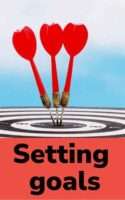The Window Through Which We Look
A young couple moves into a new neighbourhood.
The next morning while they are eating breakfast,
the young woman sees her neighbour hanging the washing outside.
“That laundry is not very clean”, she said.
“She doesn’t know how to wash correctly.
Perhaps she needs better laundry soap.”
Her husband looked on, but remained silent.
Every time her neighbour would hang her washing to dry,
the young woman would make the same comments.
About one month later, the woman was surprised to see a
nice clean wash on the line and said to her husband:
“Look, she has learned how to wash correctly.
I wonder who taught her this.”
The husband said, “I got up early this morning and
cleaned our windows.”
And so it is with life. What we see when watching others depends on the purity of the window through which we look.
Anonymous
The 27th April will forever be etched in the minds of South Africans. On this day in 1994, South Africans threw off the yoke of political and economic oppression and acquired freedom; freedom that apart from securing the right to vote, was also supposed to beckon a new dawn of economic development and opportunities and a break from the inequalities of the past. Sadly, this is not so.
Today, South Africa has one of the widest economic disparities between rich and poor, job creation is in the doldrums, unemployment among the unskilled, the skilled and particularly the youth, remains distressingly high and with low prospects to affect a rapid turnaround. Thus our political freedom is meaningless unless we can bring about fundamental economic change in our personal and collective circumstances.
‘Green shoots’ that appear to be sprouting in macroeconomic thinking include initiatives to bring unemployed youth into the formal economy through wage subsidies, and the recent adoption of the National Development Plan to guide economic growth. However, a more robust and broadly focused approach is needed. This can only be achieved through introducing accessible and relevant education! Any initiative is doomed to be unsustainable unless underpinned by a fundamental transformation in our national consciousness and our willingness to make painful, but constructive decisions, and the willingness to learn from our contemporaries around the world.
The explosion of smart technology in the 21st century and its impact on global development provides easier access to information that can drive a knowledge-based economy.
Therefore even though a conclusion usually means that one can reach a closing; a finality on a particular issue, with a complex topic such as money management this is not the case. This closing should be seen as the beginning of a new journey towards self-empowerment and fulfillment. However, often when we reflect on complex issues such as money management, the reality is that it raises more doubts, fears and questions, as well as highlights more of the emotional issues that we associate with money. Hence this book does not present the ‘final word’ on money management for our youth. The intention was essentially to provoke thinking and action around the reader’s personal relationship with an everyday commodity, money, and concurrently provide some guidance on how this resource can be better managed.
It is only through our critical reflections that we become aware of our ‘blindspots’ and to the dysfunctional thinking that might be handicapping our progress in life. Similar critical reflection should take place in educational institutions with regards to teaching methodology and learning content. The world is becoming much more complex and the pace of changes in life is increasing. In order to cope successfully within a changing world, we need to become conscious of the need to change and bold enough to do something about it!


